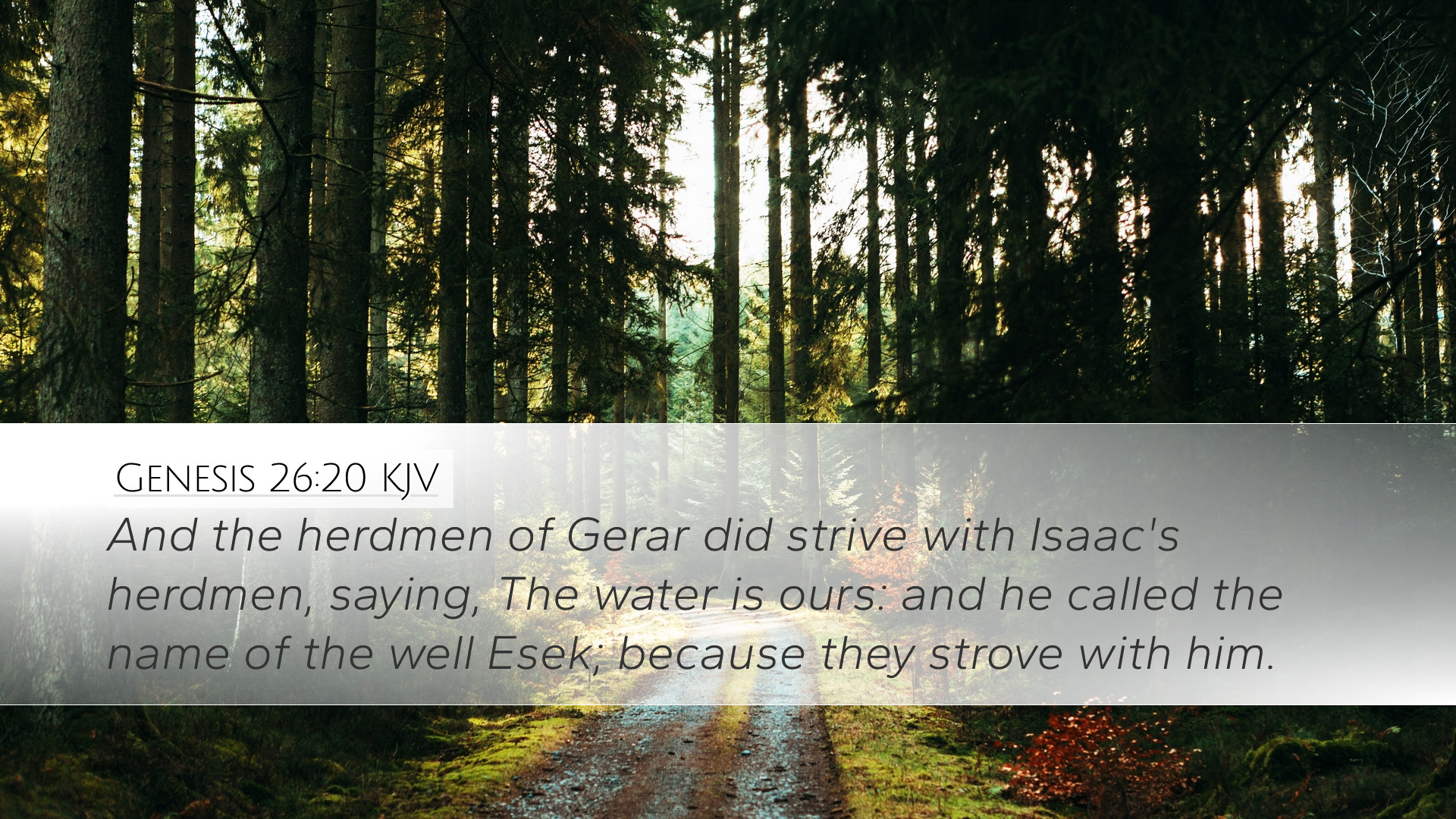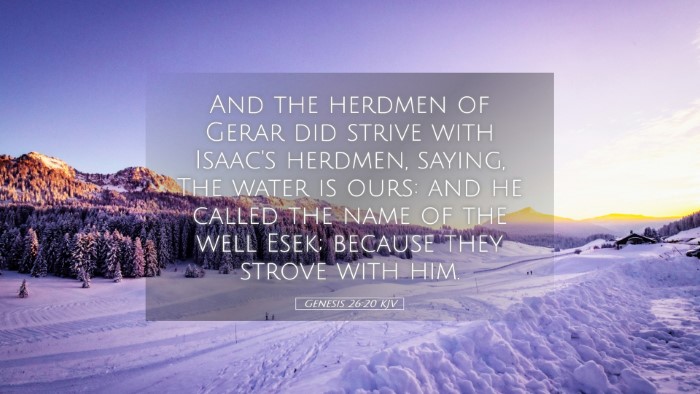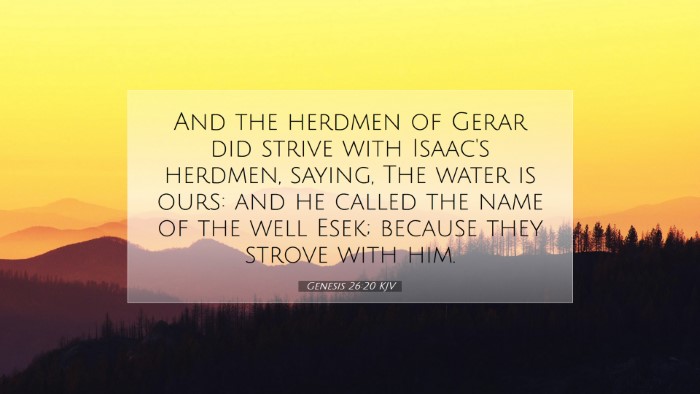Commentary on Genesis 26:20
Bible Verse: "And the herdmen of Gerar did strive with Isaac's herdmen, saying, The water is ours: and he called the name of the well Esek; because they strove with him."
Introduction
This scriptural verse is pivotal in showcasing the interpersonal conflicts surrounding Isaac as he navigates life in a foreign land. The episode encapsulates themes of contention, ownership, and divine providence. The commentaries by Matthew Henry, Albert Barnes, and Adam Clarke provide a rich tapestry of insights suitable for pastors, students, theologians, and Bible scholars alike.
Contextual Background
In the broader narrative of Genesis 26, Isaac's sojourn in Gerar reflects the life of a patriarch catching hold of God’s promises amidst challenges. The dispute over the wells he digs is more than mere territorial arguments; it embodies profound spiritual principles about conflict, resolution, and trust in God's provision.
Historical Context
- Issac's Journey: Isaac is in Gerar during a time of famine, a situation that thrust him into reliance on divine guidance rather than human judgment.
- Philistine Opposition: The Philistines, represented by the herdsmen of Gerar, symbolize the worldly challenges faced by believers when establishing their spiritual legacy.
Insights from Commentaries
Matthew Henry
Henry emphasizes the nature of conflict in this verse, noting that strife often arises in spiritual endeavors, reflecting deeper issues of ownership and the human heart. He comments that the name "Esek" signifies the contention experienced not just in this instance, but as a broader pattern in the righteous life. Believers, according to Henry, may often confront obstacles but should maintain patience and resolve, seeking God’s guidance through each skirmish.
Albert Barnes
Barnes provides a more theological perspective, interpreting the well as emblematic of spiritual sustenance and the necessity of overcoming worldly opposition to access God’s resources. He notes how the herdsmen's contention represents both literal and figurative battles that followers of Christ may encounter. Each well Isaac dug was a testament to faith in God’s promise of material and spiritual provision, highlighting the importance of perseverance in faith despite facing struggles.
Adam Clarke
Clarke focuses on the significance of the well and the strife surrounding it, emphasizing the value of peace over pride. He notes that Isaac’s response, in naming the well 'Esek', communicates a lesson about humility. It encourages a separation from unnecessary confrontations that can lead to fractured relationships with others, particularly in the pursuit of God’s blessings. Clarke urges readers to adopt a disposition of grace, choosing to move on rather than engage in disputes that detract from their ultimate mission of faith.
Theological Implications
The verse raises crucial theological implications about the nature of conflict and the believer's response to adversity. The struggle for the well, representing sustenance, unveils the tension between human effort and divine provision. Each commentator enriches our understanding of how believers might navigate disputes:
- Moral Dynamics: The conflict illustrates the moral dynamics at play when pursuing what God has promised. It challenges believers to reflect on their responses to rivalries and tensions.
- Spiritual Resourcefulness: Isaac's endeavor to dig new wells despite opposition exemplifies the resilience of faith that is not easily deterred.
Practical Applications
In light of the combined insights from the commentaries, the following practical applications emerge for contemporary readers:
- Conflict Resolution: Embrace a demeanor that seeks reconciliation and peace in the face of disputes, following the example of Isaac who did not retaliate but instead moved on to dig again.
- Divine Dependency: Recognize and affirm that true sustenance is found in God alone, underlining the significance of spiritual endeavors.
- Risk of Relationships: Maintain healthy relationships with both believers and non-believers, understanding that conflicts can arise but must be approached with wisdom and grace.
Conclusion
Genesis 26:20 serves as a crucial juncture in Isaac's narrative, portraying the inevitable struggles that accompany the pursuit of divine blessings. Drawing from the commentaries, we glean profound insights that resonate with our spiritual journeys today. As Isaac faced strife yet remained faithful, so too are we called to embrace a similar tenacity in our faith, persistently seeking the wells of God's provision within a landscape marked by both challenges and rich blessings.


